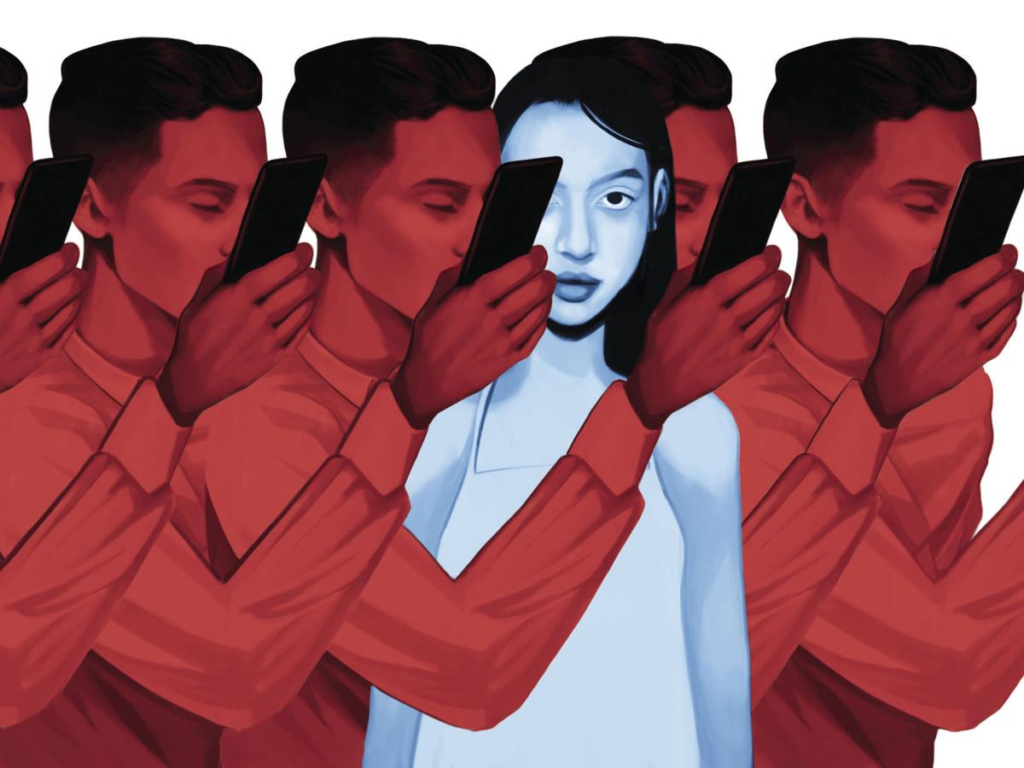Revenge Porn
By – Eshna Sharma
In a patriarchal culture that greedily consumes explicit media and yet shames women for their sexuality, it is no surprise that practices like ‘revenge porn’ thrive.
Revenge porn primarily refers to the practice of sharing sexually explicit images and/or videos of the individual without the consent of those in them. This practice is usually done to humiliate or harass the person, or as a form of coercion or harassment.
The ‘boys locker room’ incident in May of this year only seeks to show how pervasive rape culture is in Indian society, and revenge pornography is only one of the toxic outcomes of it.

In a landmark case in March 2018, a 23-year old man from West Bengal was sentenced to serve five years of jail time as well as pay a fine of Rs 9,000 when a court in the East Midnapore district ruled in favour of his 20-year old girlfriend. The man was deemed to have shared a sexually explicit video of his then-girlfriend after the termination of their relationship, in an attempt to blackmail her into getting back with him.
According to the reports of many popular news websites, cases like these, non-consensual sharing of intimate sexual images by former partners — is on the rise in India, fuelled by the spread of social media and the comfortable cloak of anonymity it offers. There are an estimated 3000 revenge porn websites worldwide. A 2016 survey conducted by Cyber & Law Foundation, an NGO in India points out that 27% of internet users aged 13 to 45 have been subjected to such situations.

LEGAL ASPECT OF REVENGE PORN
While India does have some laws in place to address the non-consensual sharing of sexually explicit content, a quick look at legal blogs’ parsing of laws surrounding this issue reveal various loopholes and flaws.
Notwithstanding the fact that none of the laws actually adequately address revenge porn, the existing laws also suffer from various other major drawbacks. One main issue that may be seen from the newly implemented section 354C of the IPC is that it is gendered in its application and limits its scope to a male offender and female victim.
In addition, one particular provision of the law is also framed in such a manner that I might lead to possible prosecution of the victim themselves.
Police insensitivity and rampant victim shaming and the stigma attached to it also makes it increasingly difficult for victims of revenge porn to speak up about their experiences and seek legal recourse for this ghastly crime.
That being said, one cannot even begin to imagine the mental trauma being the victim of revenge porn would cause. The stress, the vulnerability and the shame puts a lot of victims into states of depression and anxiety. From the interview of survivors of revenge porn, many claim that the incident “affected them on a deep level” and prevented them from fully trusting others and from forming healthy, meaningful relationships with others.
The level of distress caused by this intimate image abuse and harassment cannot be downplayed. Many victims are even driven to suicidal thoughts.
What should you do if you’re a victim of intimate image abuse?
- Keep evidence – make a record of what has been posted online, even if legal matters are not your first thought
- Report the photos or videos to the website (if you can)
- Confide in trusted friends and family members

All in all, while India does have laws to tackle non-consensual sharing of intimate images and videos, they are grossly inadequate and pay no heed to the various nuances and the sensitivity of the issue. India does not provide a favourable environment to seek recourse, and for now there is a need for reform of the current provisions, or to frame newer and better ones.
Author

